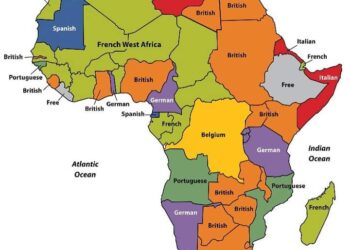Since the return of our democracy in 1999, the electoral body, the Independent National Electoral Commission (INEC) has played many Nollywood scripts, from inconclusive to rerun elections and others. Paramount among them is the deregistration of some political parties in 2009 and 2010, particularly citing reasons of poor performance at the polls.
The recent plan by the nation’s apex electoral body to further deregister political parties met swift opposition from elder statesmen, patriotic and seasoned political heavy weights who challenged the power of INEC to carry out the plan, which they a as selective, ill-informed and ill timed. Prominent among this class is the Chairman of the Alliance National Party (ANP) Asiwaju Mashood Shittu, whose party was among the last political parties that received their certificates of registration before the Osun governorship election. Even though they were clearly deprived of the opportunity to field candidates or fully participate in the election.
While describing INEC’s plan as arbitrary, the chairman emphasised that it is the National Assembly that is vested with such powers after it has deliberated through their various INEC committees on the deregistration of parties and not INEC.
Words and expressions of notes in the ANP chairman’s submission are the aspects where he reeled out voter ignorance, mind set and mortgaged interest on the choice of association and membership of political parties whereby they focus on only the two major political parties that hardly value or care for them. He also touched on the monetary factor where parties have to expand and spend enormous resources in order to establish structures at ward, local government, state and zonal levels in order to have national spread and acceptance. All these are no mean jobs.
How then can newly registered parties be able to compete with bigger, rich, older and larger parties like the governing All Progressives Congress (APC) and the main opposition Peoples Democratic Party (PDP). Asiwaju Shittu categorically made example with the incumbent President Muhammadu Buhari who in 2003 could not win the presidency due to lack of financial resources and backup. The party, the All Nigeria People’s Party (ANPP) that fielded him lacked the capacity to win. Similarly, his formed party, the Congress for Progressive Change (CPC), only won the seat of a governor, Nasarawa state, to be precise. But the alliance of the ACN of Tinubu, ANPP and others made them victorious in 2015.
What then do you expect from newly registered parties whose presence is relatively unknown in some remote parts of Nigeria? The Alliance National Party chaired by Asiwaju Mashood Shittu is even a better party compared to others who lack secretariat, staff, spread and the wherewithal. It is evident that parties like the PRP, AAC, YDP and others produced senators in Anambra, House of Representatives in Bauchi, Ogun and other states. Were these parties deregistered, how would they have produced these set of law makers in both the upper and lower chambers of the National Assembly?
It is on record that parties enjoyed the federal government’s grants from 2006 to 2011. And although the grant was only aboutN12 millionbut it helped many of them to pay for some services such as rent, pay staff and carry out sensitisation.Unfortunately, this time around, there is nothing like INEC grants. The dominance of the major political parties courtesy of their resources, structure and other factors are responsible for the non performance of smaller parties at the polls.
The All Progressive Grand Alliance (APGA) at one time produced governors of Anambra and Imo states. The Labour Party produced former Governor Mimiko of Ondo state. CPC produced Tanko Al-Makura of Nasarawa state.
This implies popular participation, all inclusive electoral terrain as well as living up to winning elections. Patience, tolerance and benefits of doubts should be the trademark of INEC and not hurrying and putting pressure on parties even though new to go out of their mandates to win elections as emphasised by Asiwaju Mashood Shittu.
The BJP party in India stayed in opposition for 30 solid years before winning the prime ministership. Nigeria cannot therefore be an exemption. Nigerians, according to the ANP chairman, should find time to go through smaller party manifestoes in order to acquaint themselves with their aggressive employment generation, infrastructure, electricity, housing, health care, education, skill acquisition, human capacity development, human rights, women empowerment as well as other befitting policies meant for their upliftment, wellbeing and satisfaction. The future matters a lot, if today is rough, tomorrow could be better.
Smaller parties deserve and require the support of Nigerian voters.
Baliratu Ibrahim writes from Abuja.



